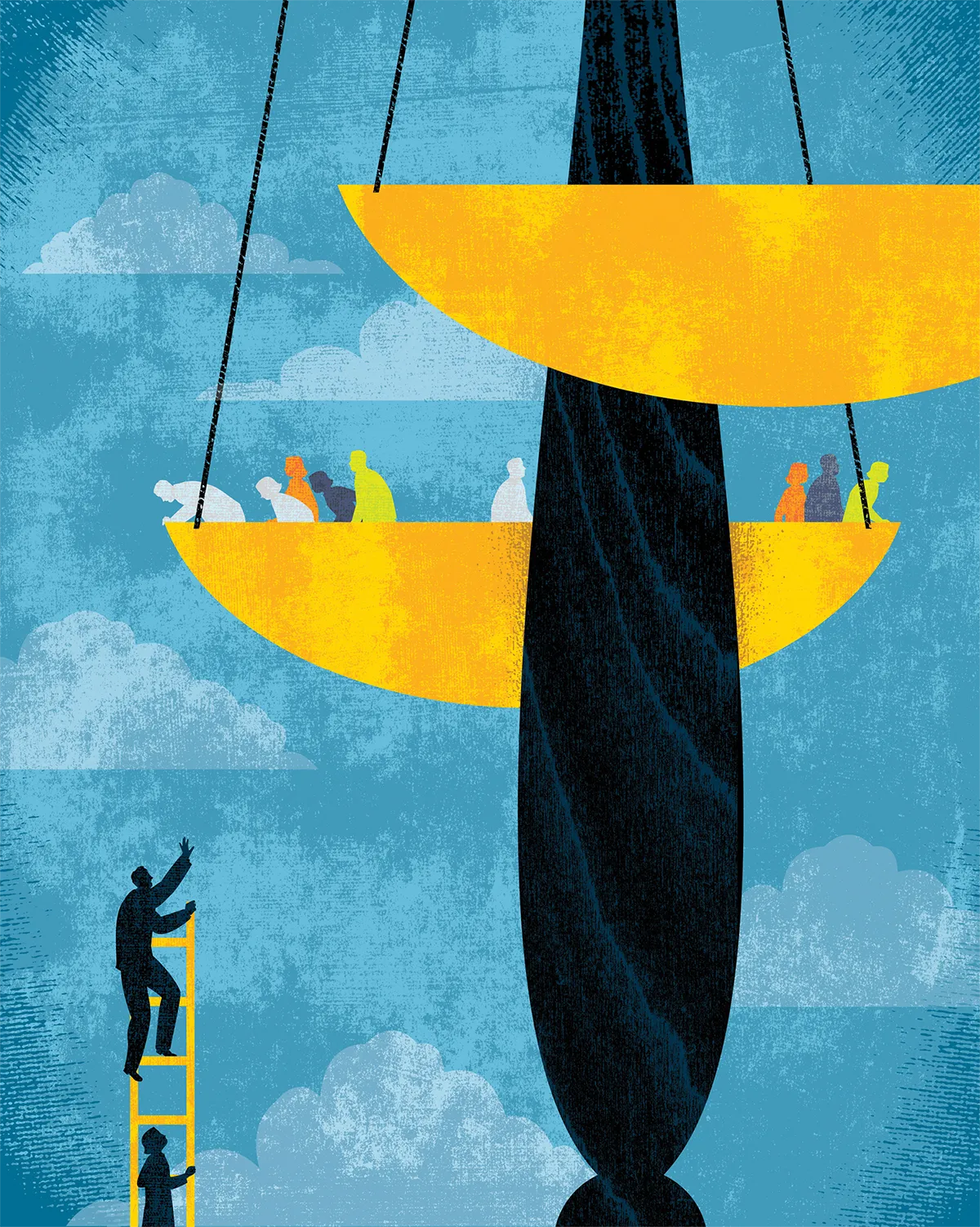
New Future of the Profession Lab to Tackle Gaps in Civil Justice System
About 95 percent of civil cases are adjudicated in state courts, she said, but the majority of low-income Americans cannot afford civil legal proceedings. “We haven’t updated our justice system in centuries,” Chief Justice McCormack said. “There’s no Netflix or Uber or Amazon-access to justice.”
Barriers to justice, particularly in the American civil sector, and discussions on how to tackle them were a central theme of the conference. One solution came in the form of a groundbreaking announcement: The FPI is launching its own project, called the Future of the Profession Lab.
When the FPI launched in 2019, there was a desire to go deeper than simply talking about structural problems in the legal profession, said Jen Leonard L’04, who is the Chief Innovation Officer and Executive Director of the FPI.
“We wanted to bring in multidisciplinary partners to help us create real-world impact,” she said. “During the pandemic, our team spent a great deal of time cultivating relationships with innovation experts around Penn — from Wharton, Engineering, the Graduate School of Education, Weitzman School of Design, and the health system. We are now poised to leverage those relationships through the Lab and develop projects that impact the lives of the many people the profession should serve but doesn’t.”
Jim Sandman L’76, who previously served as President of the Legal Services Corporation for nine years, is the Lab’s new Executive Director. He said it will focus on scalable solutions. “Our goal is impact,” he said. “We want to make a difference. The creativity of this conference—the energy here, the breadth of perspectives we have represented at this conference—is just a hint of what we might be able to do together.”
The conference opened with a keynote from Rohan Pavuluri, who developed Upsolve with Jonathan Petts C’02, L’07. The website helps low-income Americans navigate the often confusing and expensive process of filing for bankruptcy.
“In the criminal justice system, you’re guaranteed a free lawyer,” Pavuluri said. “In the civil justice system, if you’re filing for bankruptcy or … needing to fight back against an abusive landlord, you have no right to a free lawyer no matter how little money you make. Legal fees are modern-day poll taxes. If you can’t pay the fee, you can’t access your rights.”
Former Chief Justice of the Michigan Supreme Court and Strategic Advisor to the Future of the Profession Initiative
Chief Justice McCormack proposed that real change can be effected when different stakeholders in the legal profession—from law school deans to the judiciary to bar associations—have more frequent and open discussions about problems and how to solve them.
That sentiment led to a lively conversation about law schools’ roles and future curricula in the panel discussion, “Reimagining the Future of the Profession,” moderated by Dean and Bernard G. Segal Professor of Law Ted Ruger. Panelists discussed and debated the sustainability of the traditional law school model. Jordan Furlong, a legal sector analyst and the Principal of Law21, followed the discussion with a presentation on Canada’s new approaches to legal education that bypass the bar exam process.
The conference was wide-ranging, with discussions covering the importance of equity and empathy within law firms; attorney well-being; the role of Environmental, Social, and Governance (ESG) in the private sector; litigation finance; and a workshop on how to apply the concept of “human-centered design” to issues in the legal profession.
Leonard said she is excited about exploring such strategies in the Future of the Profession Lab, particularly with Sandman at the helm.
“To have a legend like Jim Sandman lead our most significant endeavor to date is a dream come true,” she said. “We are thrilled to support Jim’s vision for the Lab and work alongside him to curate projects that align with our goals of interdisciplinarity, human-centered design, and translational impact.”